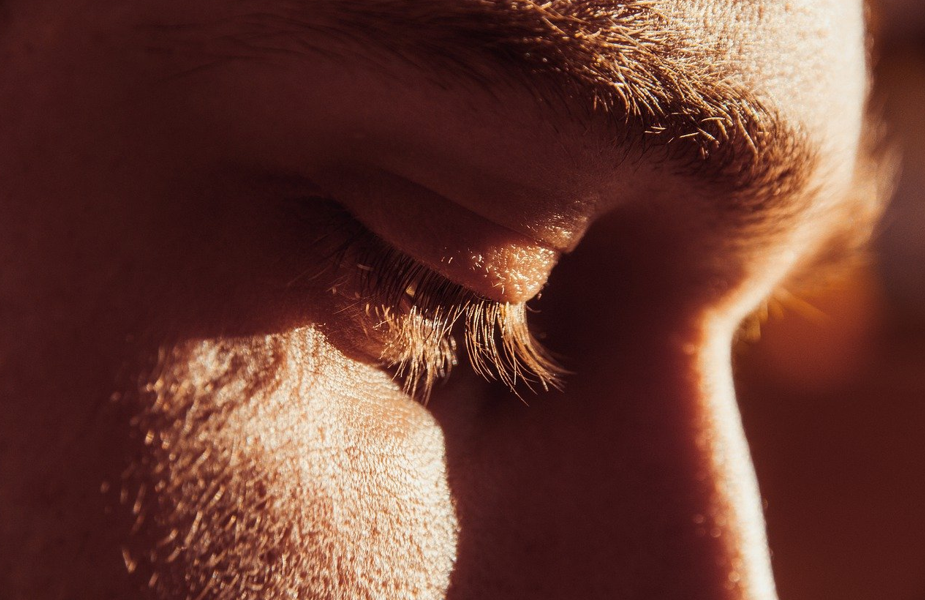Dry Eyes: Common Causes and How to Treat Them

Have your eyes ever felt gritty, burning, or constantly itching? You might suffer from dry eyes, a surprisingly common condition affecting millions worldwide. Dry eyes occur when your tears can't properly lubricate your eyes, causing discomfort and even vision problems.
Read on to learn the common causes of dry eyes, the symptoms to watch for, and practical solutions to treat and prevent this condition.
Understanding Your Tears
Our eyes rely on a complex tear system to stay healthy and comfortable. Tears are more than just water; they're a delicate mix of water, oil, and mucus. This tear film acts as a shield, protecting your eyes from dust, debris, and dryness.
The water component of the tear film keeps your eyes hydrated, while the oil layer (produced by glands in your eyelids) helps prevent evaporation. Mucus helps spread the tears evenly across your eye surface. A healthy tear film maintains clear vision and overall eye health.
Common Causes of Dry Eyes
Dry eyes can develop due to various factors that disrupt tear production or quality:
Environmental Factors
Dry climates, windy conditions, and prolonged exposure to air conditioning or heating systems can all speed up tear evaporation. Spending a lot of time outdoors in dry, windy environments can remove tears from the surface of your eyes. Similarly, low humidity levels indoors, caused by air conditioning or heating systems, can also dry out your eyes.
Digital Eye Strain
Staring at screens for extended periods can decrease blinking, leading to dry eyes. In today's digital world, many spend a significant part of their day glued to screens—computers, laptops, tablets, and smartphones. This constant focus on digital devices can disrupt our natural blinking pattern. Blinking lets us spread tears across the eye's surface to keep it lubricated. When we stare at screens, our blink rate can decrease substantially, leading to dry, irritated eyes.
Medications
Certain medications, including antihistamines used for allergies and decongestants used for colds, can have dry eyes listed as a side effect. These medications block certain chemicals in the body, including some involved in tear production. Many other medications, including antidepressants, can also sometimes contribute to dry eyes.
Underlying Conditions
Medical conditions like Sjogren's syndrome or blepharitis (inflammation of the eyelids) can affect tear production. Sjogren's syndrome is an autoimmune disease that can attack the tear glands, leading to dry eyes. Blepharitis, a condition that causes inflammation of the eyelids, can clog the oil glands, which are needed for maintaining a healthy tear film.
Age
As we age, tear production decreases, making dry eyes more common in older adults. By the time we reach our 50s, many of us experience a noticeable decrease in tear production, making us more susceptible to dry eyes.
Hormonal Changes
Women experiencing hormonal fluctuations due to pregnancy, menopause, or birth control can be more susceptible to dry eyes. Hormonal fluctuations can also play a role in dry eyes. Women may experience dry eyes during pregnancy, menopause, or while using hormonal birth control pills or other medications.
Effective Treatments for Dry Eyes
Fortunately, there are several effective ways to manage and treat dry eyes:
- Eyelid Hygiene: Our eyelids house tiny oil glands that secrete a vital tear film component. These glands can become clogged with debris and bacteria, leading to tear instability and dryness. A gentle eyelid cleaning routine using a warm compress followed by a specialized eyelid cleanser can help remove debris and keep these glands functioning optimally.
- Warm Compresses: Applying warm compresses to your eyelids can be a simple yet effective way to soothe irritation and improve tear quality. The warmth helps to melt and loosen any blockage in the oil glands, allowing them to release their essential oils into the tear film.
- Humidifiers: Humidifiers add moisture to the air, creating a more comfortable environment for your eyes and helping to prevent tears from drying out too quickly. Consider using a cool mist humidifier, especially during dry winter months or in air-conditioned environments.
- Sunglasses: Wearing sunglasses that block UV rays and wind can help shield your eyes from these irritants and minimize tear evaporation. Look for sunglasses that offer good coverage around the eyes, and consider polarized lenses for extra glare protection.
- Screen Time Management: Taking frequent breaks from screens and practicing good blinking habits can help prevent dry eyes. Try the 20-20-20 rule, which is where, every 20 minutes, you try to look at something at least 20 feet away for up to 20 seconds. Adjust screen brightness and consider using screen filters to reduce eye strain.
- Medications: In some cases, prescription medications might be necessary to address the underlying cause of dry eyes.
If you're experiencing persistent dry eye symptoms, seek professional advice from an optometrist. They can diagnose the cause, recommend the best treatment, and monitor your progress.
The Importance of Prevention
While dry eyes can be a bothersome condition, several proactive measures can help prevent their occurrence or minimize their impact:
Maintaining a Healthy Lifestyle
Eating a balanced diet rich in omega-3 fatty acids, staying hydrated, and managing stress levels can all contribute to eye health.
Limiting Screen Time
Set reminders to take regular breaks from digital devices and practice the 20-20-20 rule.
Using a Humidifier
Adding moisture to your environment, especially at night or in dry climates, can significantly benefit your eyes.
At Baptist Eye Surgeons, our team of ophthalmologists is dedicated to providing comprehensive eye care. Contact us if you are experiencing persistent dry eye symptoms.





